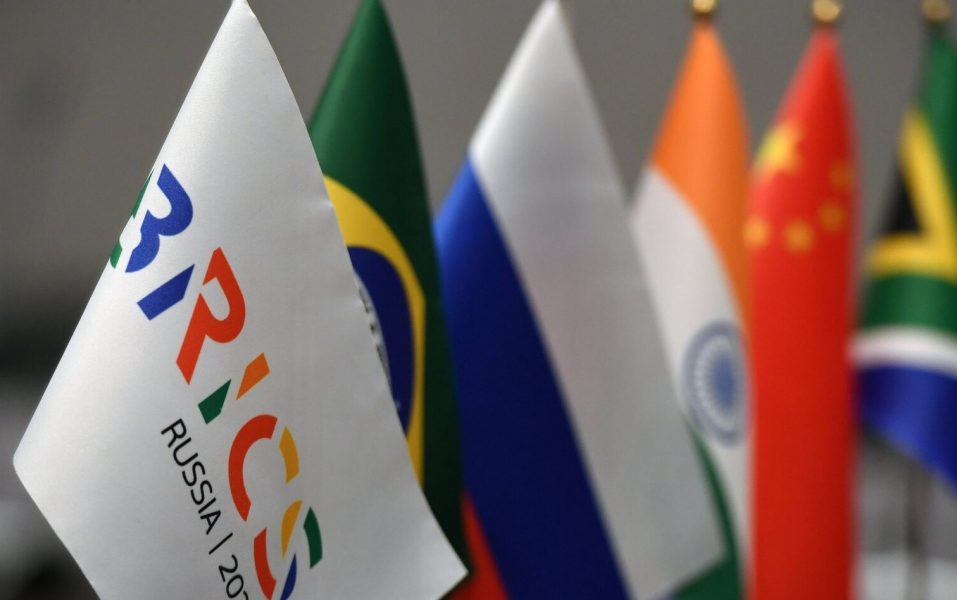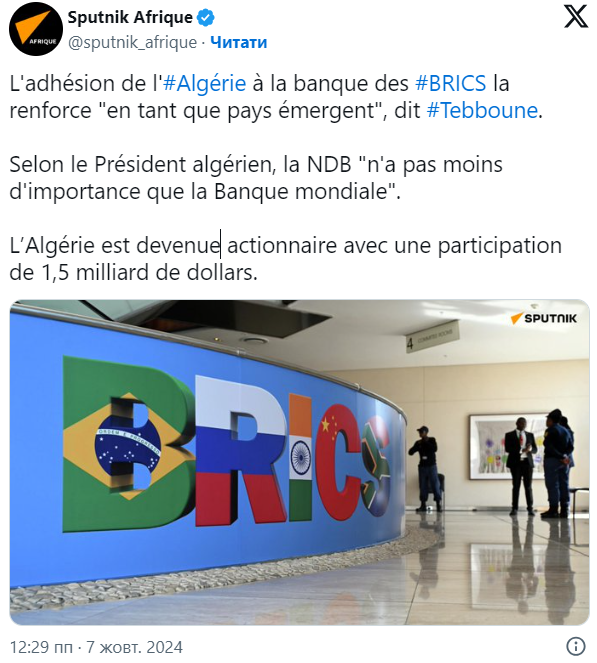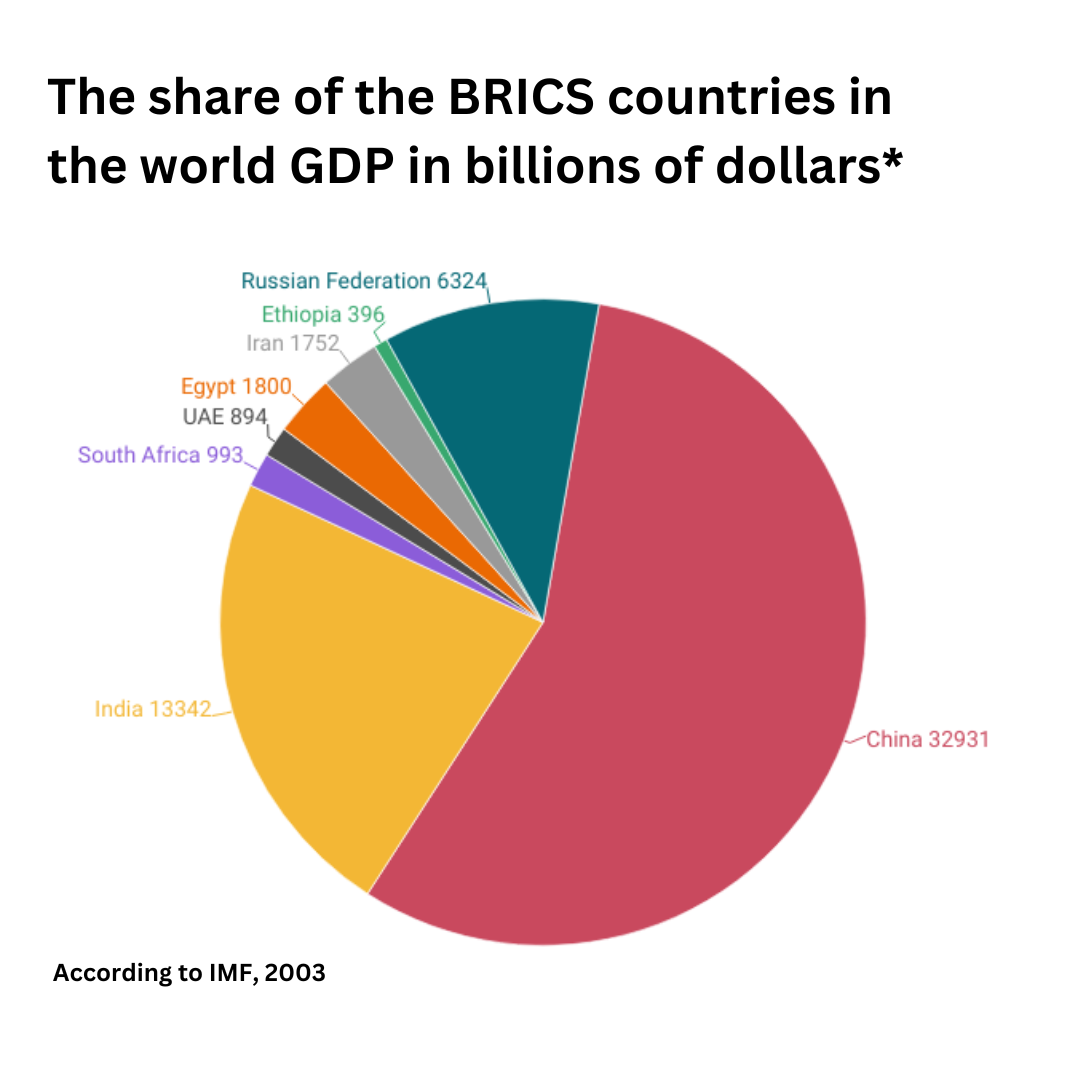Syria, Talibs, junta. How Russia is growing its influence in BRICS

The original material, authored by Oleksandr Demchenko, consultant of the CBA Initiatives Center, is posted on the Militarnyi.
It’s Assad’s regime in Syria's turn to apply for BRICS membership. This decision, like several similar ones, is adopted on the eve of the member countries summit, which will be held at the end of October in Kazan, Russia. Syria's intention is curious in the context of Afghanistan’s earlier application, and Palestine’s plans to join as well. What is Russia’s interest in these actions, and how can they aid Kremlin’s role in global politics?
It was said several times during the preparation for the Summit in Kazan, that BRICS is at the precipice of major expansion. At the same time, Russia is trying to attract countries or regimes that are significantly dependent on it to join, such as:
Syria, a country controlled by Bashar al-Assad’s regime. He retained power due to Russian military intervention.
Palestine is a partially recognised state. Its future has not yet been decided, but it is obvious that there is a major influence of anti-Israel and anti-West powers in the country’s structure, and they can count on Moscow’s support.
Afghanistan is a country controlled by the Taliban terrorist group. This makes it an outcast country, whose government is either not recognised or countries do not wish to cooperate with it directly. The Russian Federation’s statement about its intention to exclude the Taliban from the list of terrorist organizations can be a good opportunity for Kabul to get several international partners and aid from countries that will pay attention to the Kremlin’s decision. And a great opportunity for the Kremlin itself.
It is worth mentioning Burkina Faso and Mali, who also announced their intention to join BRICS (clearly under Russian influence). Both countries recently have had coup d'états, and it was groups that not only worked with the Kremlin, but demonstratively refused to join in the associations that support partnership relations with Western countries, that came to power. We are talking about the African association ECOWAS, from which these countries announced their withdrawal. Instead, they formed their own so-called confederation, which Niger has already joined.
In addition, the presence of Russian groups is growing in these three African countries and throughout the region. These groups are introduced as private actors, but in reality, they are under the control of the military leadership of the Russian Federation and act appropriately.
Algeria has taken an interesting position. It is also increasing military cooperation with the Russian Federation but avoided submitting an admission application, although it did not refuse to become a member of the BRICS bank.

Own voices
The decision on BRICS expansion was adopted during the organisation summit in South Africa in 2023. It meant the expansion from five countries ( Brazil, Russia, India, China and South Africa) to eleven (and already BRICS was joined by Egypt, Ethiopia, UAE, Iran). Nigeria, Bangladesh, Greece, and Saudi Arabia also voiced their intentions to join. Soon after negotiations on Turkey’s accession, Azerbaijan also submitted a request. It is possible the list will grow soon.
Just looking at the geography of the candidates, it is obvious that the BRICS organisation is no longer just about economic interests, and the oil market and other energy sources are not its main goal. This is an association of the countries of the so-called Global South, the concept actively promoted by the Russian Federation in opposition to the "Global West".In this way it is trying to, first, promote its long-standing concept of a "multipolar world" and, second, to legitimise terrorist regimes as "respectable partners and players in the international arena".
But looking at the organisation’s expansion, it is obvious that Russia is not an economic leader within it. According to IMF, in 2003 China’s part in global GDP was 18,7%, India’s — 7,5%. Russia's GDP barely reached 3%.

With some new members, the Russian Federation can only claim parity in economic share. It is important to note that China, India and other BRICS countries actively support economic ties with Western countries (this also applies to prospective new members), and South Africa and Egypt cooperate with Western countries in the weapons field. In addition, the largest powers of the association — China and India — are competitors. If the confrontation with the West escalates, it is unclear what their actions and decisions within the "Global South" axis will be.
In this case, it is important for the Russian Federation to maintain as much influence as possible on the decision-making process within the BRICS. Since the Kremlin lacks sufficient economic potential, it will try to use political influence and bring countries dependent on Moscow into the organisation.
If we draw historical parallels, back in the day, the Soviet dictator Stalin already tried such a method when creating the UN. At that time, the USSR was represented by several countries, and accordingly, several votes. Subsequently, countries dependent on the USSR began to join the organisation.
BRICS decisions are made collegially, therefore, Moscow will try to influence them with "own" votes. It is a separate topic whether the meaning of this structure will not be blurred altogether and whether one of the dominant member countries will not pull all the influence on itself. Although, in the end, at least China and India can create a certain balance of power.
The question is whether such a tactic of the Kremlin works because other countries will also try to have "their own" votes. China and the countries of the Arabian Peninsula are also active among the "Global South" countries, in particular in Africa.
According to this logic, Moscow faces the necessity to expand its influence, and economic and military support of like-minded countries, groups and regimes. But this does not guarantee that it won’t later lose the votes of those whom it brought to the BRICS in the first place.
Once again, it becomes clear that Russian foreign policy not only legitimises terrorist groups and, to put it mildly, dubious regimes. It also paves the way for China's expansion in regions where it has its own interests and tries not to engage in direct confrontation with other actors.
Поділитись
